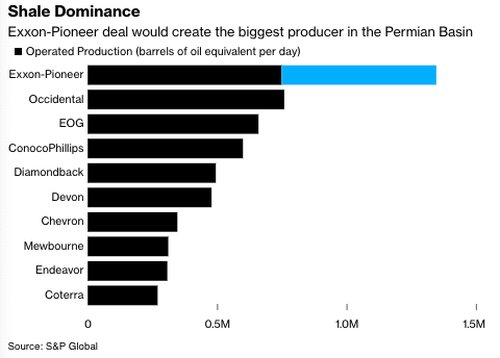Steve Bull's Blog, page 97
October 12, 2023
The Disastrous Inseparability of Western Science and Capitalism
The following is an exert from Scorched Earth: Beyond the Digital Age to a Post-Capitalist World, by Jonathon Crary. [Verso, 2022]
Any effective imagination of a post-capitalist material culture must confront the inseparability of modern technology from the institutional formations of modern science. We are currently overwhelmed from all sides by reverential exaltations of “science” and of the unimpeachable authority of “the scientists” who will deliver us from the climate crisis. The absurdity of this sanctification of one of the primary agents of biosphere destruction—including global warming—is evident to many, but there is a strict prohibition on openly acknowledging it. Science, in its many powerful institutional manifestations, is now essentialized as an a priori source of truth, existing above economic interests or social determinations and exempt from historical or ideological evaluation. It is the one remaining mirage of legitimacy behind which global capital continues its rampage of planetary looting and destruction. The marginal figures of the altruistic climatologist or oceanographer are foregrounded as camouflage for the structural complicity of most scientific research with corporate and military priorities. In the face of reactionary attacks on all forms of knowledge and learning, our response should not be a mindless celebration of a fairytale account of “science.” Such cowardly obsequiousness is an anti-intellectualism as damaging as the rightwing embrace of ignorance. The voluminous and many-sided critique of the limits and failings of Western science has been rendered invisible and unmentionable. Contributors to this essential body of thought include some of the most discerning philosophers, scientists, feminists, activists, and social thinkers of the last hundred or more years. We’re at a moment when the survival of life on our planet depends on reanimating this critique, and recovering an unequivocal awareness of how most of the foundational paradigms of Western science have brought us to our current disastrous, possibly terminal, situation.
…click on the above link to read the rest…
Offshore Wind is an Economic and Environmental Catastrophe
California project would be one of the most egregious cases of environmental destruction in human history
When it comes to “renewables” wreaking havoc on the environment, wind turbines have stiff competition. For example, over 500,000 square miles of biofuel plantations have already replaced farms and forests to replace a mere 4 percent of transportation fuel. To source raw materials to build “sustainable” batteries, mining operations are scaling up, with no end in sight, in nations with appalling labor conditions and nonexistent environmental regulations. But the worst offender is the wind industry.
America’s wind power industry somehow manages to attract almost no negative coverage in the press, or litigation from environmentalists, despite causing some of the most obvious and tragic environmental catastrophes so far this century. Last August I wrote about the ongoing slaughter of whales off America’s northeast coast thanks to construction of offshore wind turbines:
“When you detonate massive explosives, repeatedly drive steel piles into the ocean floor with a hydraulic hammer, and blast high decibel sonar mapping signals underwater, you’re going to harm animals that rely on sound to orient themselves in the ocean. To say it is mere coincidence that hundreds of these creatures have washed ashore, dead, all of a sudden, during precisely the same months when the blasting and pounding began, is brazen deception.”
Nonetheless, when the story can’t be buried, deception is the strategy. Not one major environmental organization, government watchdog agency, or media outlet has called for a slowdown in industrial offshore wind projects. Instead, they repeatedly claim these allegations are misinformation. And from that paragon of truth, FactCheck.org, we get this: “No Evidence Offshore Wind Development Killing Whales.”
…click on the above link to read the rest…
October 11, 2023
Today’s Contemplation: Collapse Cometh XX–Climate Emergency Action Plan: Electrification and Magical Thinking
 Pompeii, Italy (1993) Photo by author
Pompeii, Italy (1993) Photo by authorClimate Emergency Action Plan: Electrification and Magical Thinking
Today’s contemplation is once again generated by way of an article from the online media site The Tyee. It’s topic is the city of Vancouver’s (British Columbia, Canada) attempts to require ‘electrification’ of all new buildings as part of their Climate Emergency Action Plan and the pushback by the Canadian Institute of Plumbing and Heating.
My first comment below was to bring to the surface the Overton Window that most media articles tend to display when discussing climate change actions and associated issues, particularly that it is only via ‘electrification’ of our society that we can adequately sustain our complexities and wean ourselves from the energy provided by fossil fuels; and thus ‘save our planet’.
The comment that follows is in response to another who responded to my comment with the tendency of some to buy into false (magical?) ‘solutions’. We tend to do this for any number of reasons, most (all?) of which are bio-psychological in nature.
The Overton Window established around policies/actions to address our ecological/environmental dilemmas is on full display here.
Want to reduce our impact on the planet? Stop adding to the problem that is the fundamental one: growth. None of the growth we continue to pursue (i.e., economic, population, etc.) is ‘Net Zero’ even if its needs are all ‘electrified’. ‘Electrification’ still requires ecologically-destructive sources to supply the energy; the notion that it is in any way ‘Net Zero’ is a comforting narrative that helps reduce the cognitive dissonance created when conflicting beliefs exist (e.g., growth can continue with little impact on the planet if we just ‘electrify’ it verses we live on a finite planet with hard biophysical limits that we have overshot in many cases).
The end of the fossil fuel age appears to be approaching and we need to acknowledge that the coming decline in the cheap and powerful energy it has provided will send our world (and most? all?) of our assumptions about modern, complex societies sideways in mostly unexpected ways. And this energy cliff we are beginning to experience is not because of our choosing to abandon fossil fuels (that is just the mainstream/dominant narrative being weaved); it’s because they are a finite resource that has encountered diminishing returns for some decades now and can no longer be economically accessed — to say little about the negative ecological impacts their use (and more recently, retrieval) have.
We can continue to weave comforting narratives such as ‘it’s just a matter of transitioning to a new, clean/green energy source and all will be well’, or we can confront the coming energy cliff and its significant knock-on effects (e.g., resource shortages, long-distance supply chain breakdowns, economic disruptions via bankruptcies/infinite currency devaluation-via fiat money ‘printing’, etc.) and attempt to build local/community resilience and self-sufficiency with our remaining (and finite) energy and material resources.
Which path is chosen (or some iteration of it) will impact how well a region/community fares as our energy-intensive living standards hit the wall that appears to be fast approaching.
I truly do believe many people are susceptible to/persuaded by misleading stories/narratives for a variety of reasons. Perhaps the most prominent of those being the deference to authorities/experts that we tend to display (think Stanley Milgram’s electric shock experiments). We tend to have trust/faith in particular people/professions and the marketers/propagandists (aka snake oil salesmen) are quite aware of this. So, a handful of academics/politicians/‘experts’ come out and declare ‘electrification’ of everything will lead us to the promised land…and here we are, only discussing the more comforting (and misleading/false) ‘solution’ and completely ignoring a more painful one that may be much more realistic in nature.
We are also genetically predisposed to avoid pain and seek pleasure, so a story of hope that can delay or bypass possible unpleasant consequences is much more easily believed and clung to than one that portends discomfort and difficulty. And one of the primary ways we reduce the psychological pain created by conflicting belief systems (that I’ve repeatedly emphasised) is to dismiss/deny/ignore the more painful one, such as having to forfeit comfortable living standards/expectations.
Another confounding factor in all this is the grieving process that people oftentimes go through when realising a significant loss (i.e., the lifestyle you ordered/expected is out of stock). Kubler-Ross’s original stages of grief is a great checklist for how many of us confront such loss. Denial (where the loss is imagined to not exist — many people are in this stage); anger (a lot of blame put on ‘others’ here); bargaining (when we begin creating ‘if only’ narratives — I would argue those in this stage become especially susceptible to the snake oil salesmen); depression; and acceptance. It is likely that until most of us are in the final acceptance stage will we be able to reach consensus on how best to confront the existential dilemmas we have created for ourselves and this planet.
Today’s Contemplation: Collapse Cometh XVIII–‘Renewables’, Electrify Everything, and Marketing Propaganda
 Tulum, Mexico (1986) Photo by author
Tulum, Mexico (1986) Photo by author‘Renewables’, Electrify Everything, and Marketing Propaganda
As per usual, my comment on an article in The Tyee that gives an interesting perspective on the idea of ‘Carbon Footprint’ and individual verses collective actions in addressing the behavioural/consumption changes necessary for effective action on climate change.
Great read and perspective.
“The problem is that climate change is as much a political problem as it is a scientific one. It’s not that we’ve been failing to make individual lifestyle changes; it’s that powerful interests have knowingly obscured, distracted from and delayed climate action over the last 50 years.”
I find this key to help in understanding one of the narratives that have come to dominate the ‘environmental/climate change/global warming’ movement: a transition to ‘renewables’ (or ‘green/clean’ energy) and ‘electrifying’ everything is the best path forward; and many of The Tyee writers are as guilty of this as well.
As has been shown by Jeff Gibbs’ Planet of the Humans and Julia Barnes’ Bright Green Lies, the ‘environmental’ movement appears to have been hijacked by powerful/influential political/economic interests in order to market the idea that getting everyone to shift away from fossil fuel-based industry and products is the key action in fighting climate change and avoiding the predicted consequences of it.
This idea is, I believe, primarily a marketing/sloganeering/narrative control campaign to help the businesses/corporations/industries involved in ‘renewables’ and associated products in expanding their consumer base and shifting capital towards them. It is not and never has been about protecting or saving the environment and ecological systems. It is about protecting and saving our energy-intensive, business-as-usual complexities and the technologies necessary to support/maintain these; and it is driven by the primary motivation of the ruling class/powers-that-be/elite: expansion/control of the wealth-generating systems that provide their revenue streams.
Scratch even gently at the surface of this propaganda/narrative and you will find the emperor has no clothes. Fossil fuels are just as necessary, in fact probably more so, in any transition to ‘renewables’.
Mining and processing of finite materials (particularly rare-earth minerals) require fossil fuel driven vehicles and machinery (and, of course, the fact that these materials are ‘finite’ in nature is key here as their production and distribution would be significantly limited and not capable of meeting the demand of our world — especially of ‘advanced’ economies and their complexities).
Massive amounts of concrete and steel production, which depend greatly on the high heat only available via fossil fuels (particularly coal), would be needed.
Then there’s the issue of energy-return-on-energy-invested (EROEI): fossil fuels provide far, far greater energy (or at least they did when we were retrieving the easy- and cheap-to-access reserves; not so much now that we are relying on marginal sources such as deep sea reserves, tight/shale oil, and oil/tar sands) than ‘renewables’. And it is the surplus energy that has been provided by high EROEI fossil fuels that has allowed our modern, industrialised, and global civilisation to grow and flourish the way it has over the past couple of centuries. Low EROEI ‘renewables’ are incapable of supporting our complexities in the same way; not even close.
As a final point (although there are other issues/problems/disadvantages), the production of ‘renewables’ also wreaks havoc on ecological systems. From the very dirty mining and material processing to the after-life/disposal of the products, ‘renewables’ continue to produce and disseminate toxins into the atmosphere and local environments. They are neither ‘clean’ nor ‘green’. In fact, the notion of ‘green/clean’ energy is an oxymoron of epic proportions and should never be used by anyone serious about the issues involved in energy production and environmental/ecological issues for it just feeds the monster that is corporate marketing.
And here I come back to another statement in the article that supports my view: “It’s about realizing that the consumer choices we have available to us are deliberately limited by the powerful interests that seek to maintain the status quo.”
Yes, we have powerful interests that have hijacked the narrative via what could be considered the use of the Overton Window: a limiting of ideas of what is acceptable to consider. Fossil fuels verses ‘renewables’. There’s no discussion of the limitations or profoundly propagandised view of what ‘renewables’ actually are and require. There’s just a ‘you’re-with-us or you’re-against-us’ framework and a bunch of well-intentioned but misguided people repeating the mantra: renewables/electrification now.
There’s no thinking outside the box or consideration of what I believe is desperately needed: degrowth. Degrowth is off limits and its discussion suppressed for a number of reasons but mostly because it challenges the primary motivation of those at the top of society’s power/economic structures: control/expansion of the wealth-generating systems that provide their revenue streams.
We live on a finite planet with real biophysical limits that have very likely been well surpassed in a number of areas. The sooner we realise this and reach the conclusion that we cannot in any way support or expand our high-energy complexities and the growth that accompanies this, the sooner we might, just might, get on the path towards degrowing our world in a just and equitable way rather than continue to chase the magical thinking necessary to sustain our world as currently contrived and going even further into overshoot than we already have. Reversion to the mean always happens in such instances and if we hope to mitigate in any controllable way the consequences that will flow from this, we need to get started — like yesterday.
Today’s Contemplation: Collapse Cometh XVII–‘Renewables’ and the Overton Window That Ignores Biophysical Realities
 Teotihuacan, Mexico (1986) Photo by author
Teotihuacan, Mexico (1986) Photo by author‘Renewables’ and the Overton Window That Ignores Biophysical Realities
‘Renewables’. They will save us! This is one of the most common beliefs being bandied about by the ruling class and especially those that stand to profit from a shift to them in an attempt to power our complex society. I would argue, however, that we are not being told some uncomfortable truths about such a shift. Here is my comment to a Tyee article that discusses the city of Vancouver’s plan to address air pollution.
“…shifting industrial power sources from coal to renewables…”
As Mike Tyson is credited with saying: “Everyone has a plan until you get punched in the face.”
And the face punch here is the fact that many industrial processes cannot be shifted to renewables — to say little about the fact that renewables also rely heavily upon the industrial processes that depend upon fossil fuels and simply externalise the pollutants/ecological destruction required to ‘energise’ technology.
Here are a handful of articles that explain why alternatives are inadequate for significant industrial processes we rely upon:
https://www.vox.com/energy-…
https://www.energypolicy.co…
http://energyskeptic.com/20…
http://energyskeptic.com/20…
https://www.independent.co….
But let’s be frank, the Overton Window being forced upon this discussion (i.e., the only choice for our energy-intensive society is to shift from fossil fuels to ‘renewables’), including by many journalists, completely ignores some harsh realities, such as biophysical limits on a finite planet and thermodynamics. The assumption seems to be always that we can only fight climate change (ignoring all the other ecologically-destructive consequences of our constant pursuit of growth) by shifting away from fossil fuels (a high-density and easily transportable fuel that supports almost everything about our globalised and industrial complex world) to ‘renewable’ forms of energy (that are not truly renewable and especially not ‘green/clean’).
Where is the discussion about NOT pursuing a business-as-usual pursuit of growth and an energy-intensive society? Where is the discussion about degrowth? Where is the discussion about our fundamental problems, especially overshoot? Where is the discussion about perhaps moving towards a low-tech society that requires little to no environmentally-destructive energy sources and finite resources? Where is the discussion about challenging the pursuit of the infinite growth chalice? Where is the discussion challenging the constant refrain by the ruling class that growth is only beneficial? Where is the discussion about maybe, just maybe, we need to rethink quite seriously our entire way of life and not pursue business-as-usual with just a simple ‘tweak’ of energy sources? And, where is the discussion that our media and its journalists in ignoring these hard questions are contributing to our dilemmas by proliferating false, misleading, and very likely quite harmful beliefs?
Most (all?) discussions about reducing fossil fuel use are comforting narratives that help to reduce our mass cognitive dissonance that is created when one realises that our lifestyles/complex society cannot continue as it is on a finite planet. We tell ourselves and others that our human ingenuity (especially via technology and ‘science’) will save us without realising that all we are doing is avoiding the really tough decisions that need to be made, individually and collectively.
I would argue most of this is because of the constant propaganda by the globe’s ruling class that is working hard to control/expand the wealth-generating systems that provide their revenue streams (one of the most ‘profitable’ here being taxation — something every society sees increase significantly as it nears its collapse due to increasing diminishing returns and the powers-that-be’s attempt to keep their privileges intact), with the latest approach here to shift capital from an unsustainable and ecologically-destructive enterprise (fossil fuel use) to another enterprise (‘renewable’ energy use) but that is equally unsustainable and ecologically-destructive — but it will increase profits considerably for a time.
The masses are being sold a story. It is a comforting story and most will accept it without question. But scratch below its surface even gently and you will see that the emperor has no clothes.
Today’s Contemplation: Collapse Cometh XIII–Electrify Everything: Neither ‘Green’ Nor ‘Sustainable’
 Tulum, Mexico (1986) Photo by author
Tulum, Mexico (1986) Photo by authorElectrify Everything: Neither ‘Green’ Nor ‘Sustainable’
Electrifying everything has become a rallying cry for many people concerned with the ecological/environmental impact of humanity. But do such attempts to mitigate/solve such problems/dilemmas actually do what they claim to? I would argue no. They are simply substituting one set of problems for another set of problems and completely avoiding the underlying causes. They are primarily about creating the idea that they are a solution, not that they truly are. They are a marketing scheme to sell products and gloss over using language the problematic issues they prolong or create. It is fundamentally about propaganda, not addressing the plight that human expansion is.
In this vein, here is my comment on an article that looks at substituting electric long-haul trucks for internal combustion engine ones.
_____We really do need to stop using language that does not reflect reality. Electric vehicles are neither ‘green’ nor ‘clean’. A shift to them is not in any way, shape, or form helping us to address the various ecological/environmental dilemmas humanity has created in its endless expansion and exploitation of the planet’s limited resources (and that go far beyond carbon emissions).
Narratives that use the small Overton window of internal combustion engines vs. electric vehicles completely disregard the underlying issues of our dilemmas and avoid the hard choices that need to be made — to say little about the fact that they mislead and propagate false beliefs. They do, however, help significantly in reducing our mass cognitive dissonance that is created from our pursuit of the growth chalice on a finite planet with hard, biophysical limits.
The question that needs to be confronted and at the forefront of hauling goods around is why we continue to pursue an energy- and resource-intensive approach to living and should real sustainability not be primary in our thoughts? We need to not only be discussing fervently the concept of degrowth and how we can implement it equitably, but focusing our energies and finite resources on localising everything so such wasteful pursuits are curtailed significantly, not attempting to use up the remaining resources in some hollow pursuit to hold on to unsustainable practices.
Electrifying everything is not a panacea. In fact, I have increasingly come to view the entire idea as primarily an attempt to shift capital from one unsustainable, ecologically-destructive enterprise (fossil fuels) to another equally unsustainable and ecologically-destructive one (all the alternatives). It is a marketing scheme concocted to ‘sell’ the idea that we can seamlessly transition to other energy sources and address our toxic legacy. All it is doing, however, is substituting one problematic technology for another (and that still depends upon and requires massive amounts of fossil fuels from the mining for resources to the processing of minerals to the manufacture of products…to say little about the impact of the toxins that must be considered in the after-life of electric products and alternative energy sources, especially the batteries necessary).
We have been increasingly propagandised through repetitive sloganeering that electric vehicles and alternative energy sources to fossil fuels is our saviour. They are not. They are snake oil from salesmen whose primary purpose is to generate wealth and profit regardless of the cost. We would do well to stop listening to such nonsense and shout as often as possible “the emperor has no clothes!”
Today’s Contemplation: Collapse Cometh XII–Growth Greenwashing: A Comforting Narrative
 Teotihuacan, Mexico (1986) Photo by author
Teotihuacan, Mexico (1986) Photo by authorGrowth Greenwashing: A Comforting Narrative
My comment on an article regarding the cessation of a provincial programme for municipalities in British Columbia meant to support and fund climate change initiatives.
Not sure what the situation is like in BC surrounding provincial mandates and municipalities, but I would judge a programme that is supposedly to support climate change initiatives in Ontario municipalities to be primarily about political theatre, certainly not about addressing any type of environmental dilemma. I live in a municipality on the edge of the Greater Toronto Area that has been chasing perpetual growth for many, many years. In fact, it uses this growth to try and attract more growth, marketing itself as one of the fastest growing areas in Ontario and thus the place to live and work.
This growth comes at a steep cost, if you ask me. That being the expansion of suburban residences over prime agricultural land and sensitive ecological habitat being on the glacial till known as the Oak Ridges Moraine. They have shifted their plot somewhat in arguing that they are concentrating on densification of the town proper (they just approved a large apartment/condo complex in the middle of town that far exceeds previous ‘bylaws’ regarding height restrictions — you know, a one-off exception), yet the construction of residential communities continues unabated in areas outside this supposed new approach as farmland continues to be paved over; adding to the looming crisis Ontario will face as it adds more and more people yet already imports more than 80% of its food.
As my once ‘small’ town (about 18,000 when we moved here in 1995) approaches 50,000 and supposedly will ‘max’ out at around 80,000, I have to wonder how the town’s motto (Country Close to the City) connects to the reality on the ground. I’ve been suggesting for a number of years the town should abandon this farcical slogan and change it to what is actually happening: Suburbia Close to More Suburbia.
When pushed about this ongoing pursuit of growth, our municipal politicians invariably skirt responsibility stating they are simply following the diktats of the provincial government; their task being to implement provincial mandates in a manner that considers local ‘needs’, particularly the environmental sensitivity of the area (leading me to conclude these municipal ‘representatives’ are really little more than local, middle managers doing as instructed from the more distant ‘representatives’ of the province — I put ‘representative’ in quotes as one has to wonder who exactly the politicians ‘represent’ in their policies/decision-making; I tend to believe it is those at the top of our power structures, not the ‘average’ citizen).
I have to laugh at the bombastic rhetoric. They cheerlead ‘sustainable’ development and growing with the environment in mind without flinching at the hypocrisy in their oxymoronic statements at all. They talk about protecting the environment while undermining it with expansion. They speak of responsibility to future generations while using up all the finite resources that support life. They expand and expand and expand with no understanding of how exponential growth quickly overwhelms systems and that overshoot of the environmental carrying capacity of a region always ends in collapse.
The foxes truly are in charge of the henhouse. But they have created a comforting narrative so that the chickens can avoid the cognitive-dissonance that comes from realising it’s all just a fairy tale. Ontario, a place to ‘grow’.
Exxon Becomes King Of Shale With Blockbuster $60 Billion Purchase Of Pioneer
Exxon Mobil Corp. is buying Pioneer Natural Resources in an all-stock transaction valued at $59.5 billion, or $253 per share, based on ExxonMobil’s closing stock price on Oct. 5. The supermajor’s largest takeover in more than two decades will make it a dominant producer of shale oil – as well as being extraordinary transformational for the US energy sector that might unleash another shale revolution.
As part of the agreement, Pioneer shareholders will receive 2.3234 shares of ExxonMobil for each Pioneer share at closing. The deal (implied total enterprise value of the transaction, including net debt, is approximately $64.5 billion), the largest since Exxon’s corporate takeover of Mobil Corp. in 1999, is also the world’s largest corporate takeover announced this year and will close in the first half of 2024.
ExxonMobil’s Permian production volume would double to 1.3 million barrels of oil equivalent per day (MOEBD), based on 2023 volumes, and could exceed 2 MOEBD in 2027. “ExxonMobil believes the transaction represents an opportunity for even greater US energy security by bringing the best technologies, operational excellence, and financial capability to an important source of domestic supply, benefitting the American economy and its consumers,” the company said.
When the deal is finalized, Exxon will be crowned ‘king shale’ in the Permian Basin of Texas and New Mexico and increase the company’s daily production to nearly 4.5 million barrels per day – more than 50% than the next largest supermajor.
 Source: Bloomberg
Source: Bloomberg “Pioneer is a clear leader in the Permian with a unique asset base and people with deep industry knowledge. The combined capabilities of our two companies will provide long-term value creation well in excess of what either company is capable of doing on a standalone basis,” said ExxonMobil Chairman and CEO Darren Woods.
…click on the above link to read the rest…
October 10, 2023
What do the Rich Have in Mind? First, Their own Survival

We know very little about what the rich actually think, surely nothing like what transpires from their public declarations. I’ve always been thinking that the rich and the powerful are not smarter than the average commoner, such as you and I. But just the fact that they are average means that the smart ones among them must understand what’s going on. And what are they going to do about the chaos to come? They have much more power than us, and whatever they decide to do will affect us all.
Douglas Rushkoff gives us several interesting hints of what the rich have in mind in his book “Survival of the Richest” (2022)

The portrait of the average rich person from the book is not flattening. We are told of a bunch of ruthless people, unable to care for others (that is, lacking empathy), and convinced that the way to solve problems is to accumulate money and keep growing as if there are no limits. But Rushkoff tells us that at least some of them understand that we are going to crash against some kind of wall in the near future. And they are preparing for that.
Even without Rushkoff’s book, it seems clear to me that plenty of planning and scheming is going on behind closed doors. Large sections of our society are by now completely opaque to inquiry, and commoners have no possibility to affect what’s being decided. We know less of what’s going on in Washington’s inner circles than the Danish peasants knew of what was going on inside the Castle of Elsinore.
…click on the above link to read the rest…
Thoughts on Proclamation 7463, or ‘Digital McCarthyism’ on the Move
As I say, things are always worse than they seem.
On September 14, 2001, George W. Bush, exercising “the power vested in [him] as President of the Untied States,” issued Proclamation 7463, a “Declaration of National Emergency by Reason of Certain Terrorist Attacks.” That got the ball rolling on the construction of the surveillance state.
At the time, the extreme measure seemed justified. Three days earlier, the United States had suffered its most devastating terrorist attack in history.
But how about this: On September 8, 2023, Joe Biden quietly renewed the Bush era emergency measures for another year. I was told there would be no math, but that makes 22 years and counting that a vast array of surveillance assets have been mobilized against—against whom?
When George W. Bush was president, they were focused on al Qaeda and kindred groups. Today?
Today, that fearsome governmental power is still assembled. Increasingly, however, it seems to be focused against those the administration fears or dislikes.
Traditional Catholics, for example, or parents upset with their local school boards.
At the head of the list of potential “domestic extremists” are the tens of millions of people who support Donald Trump (not to mention, of course, Trump himself). A couple of days ago, Hillary Clinton took to CNN (it would be CNN) to say that something needed to be done to silence those misguided people who supported Trump. “Maybe,” she said, “there needs to be a formal deprogramming” of MAGA “cult members.”
Apparently the FBI agrees. According to a much-cited article in Newsweek, the agency has created a “new category of extremists that it seeks to track and counter: Donald Trump’s army of MAGA followers.” That article suggests that the FBI is struggling to combat genuine threats without attacking people who simply support Trump and other populist candidates…
…click on the above link to read the rest…




